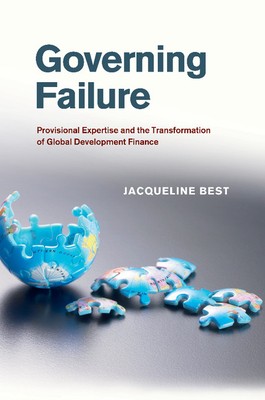
- We will send in 10–14 business days.
- Author: Jacqueline Best
- Publisher: Cambridge University Press
- ISBN-10: 1107474930
- ISBN-13: 9781107474932
- Format: 15.2 x 22.9 x 1.5 cm, minkšti viršeliai
- Language: English
- SAVE -10% with code: EXTRA
Reviews
Description
Jacqueline Best argues that the 1990s changes in IMF, World Bank and donor policies, towards what some have called the 'Post-Washington Consensus, ' were driven by an erosion of expert authority and an increasing preoccupation with policy failure. Failures such as the Asian financial crisis and the decades of despair in sub-Saharan Africa led these institutions to develop governance strategies designed to avoid failure: fostering country ownership, developing global standards, managing risk and vulnerability and measuring results. In contrast to the structural adjustment era when policymakers were confident in their solutions, this is an era of provisional governance, in which key actors are aware of the possibility of failure even as they seek to inoculate themselves against it. Best considers the implications of this shift, asking if it is a positive change and whether it is sustainable. This title is available as Open Access on Cambridge Books Online and via Knowledge Unlatched
EXTRA 10 % discount with code: EXTRA
The promotion ends in 21d.03:14:39
The discount code is valid when purchasing from 10 €. Discounts do not stack.
- Author: Jacqueline Best
- Publisher: Cambridge University Press
- ISBN-10: 1107474930
- ISBN-13: 9781107474932
- Format: 15.2 x 22.9 x 1.5 cm, minkšti viršeliai
- Language: English English
Jacqueline Best argues that the 1990s changes in IMF, World Bank and donor policies, towards what some have called the 'Post-Washington Consensus, ' were driven by an erosion of expert authority and an increasing preoccupation with policy failure. Failures such as the Asian financial crisis and the decades of despair in sub-Saharan Africa led these institutions to develop governance strategies designed to avoid failure: fostering country ownership, developing global standards, managing risk and vulnerability and measuring results. In contrast to the structural adjustment era when policymakers were confident in their solutions, this is an era of provisional governance, in which key actors are aware of the possibility of failure even as they seek to inoculate themselves against it. Best considers the implications of this shift, asking if it is a positive change and whether it is sustainable. This title is available as Open Access on Cambridge Books Online and via Knowledge Unlatched


Reviews